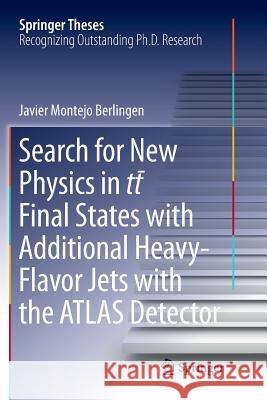Search for New Physics in Tt ̅ Final States with Additional Heavy-Flavor Jets with the Atlas Detector » książka
topmenu
Search for New Physics in Tt ̅ Final States with Additional Heavy-Flavor Jets with the Atlas Detector
ISBN-13: 9783319822532 / Angielski / Miękka / 2018 / 283 str.
Search for New Physics in Tt ̅ Final States with Additional Heavy-Flavor Jets with the Atlas Detector
ISBN-13: 9783319822532 / Angielski / Miękka / 2018 / 283 str.
cena 402,53
(netto: 383,36 VAT: 5%)
Najniższa cena z 30 dni: 385,52
(netto: 383,36 VAT: 5%)
Najniższa cena z 30 dni: 385,52
Termin realizacji zamówienia:
ok. 22 dni roboczych
Dostawa w 2026 r.
ok. 22 dni roboczych
Dostawa w 2026 r.
Darmowa dostawa!
Kategorie BISAC:
Wydawca:
Springer
Seria wydawnicza:
Język:
Angielski
ISBN-13:
9783319822532
Rok wydania:
2018
Wydanie:
Softcover Repri
Ilość stron:
283
Waga:
0.42 kg
Wymiary:
23.39 x 15.6 x 1.6
Oprawa:
Miękka
Wolumenów:
01
Dodatkowe informacje:
Wydanie ilustrowane











